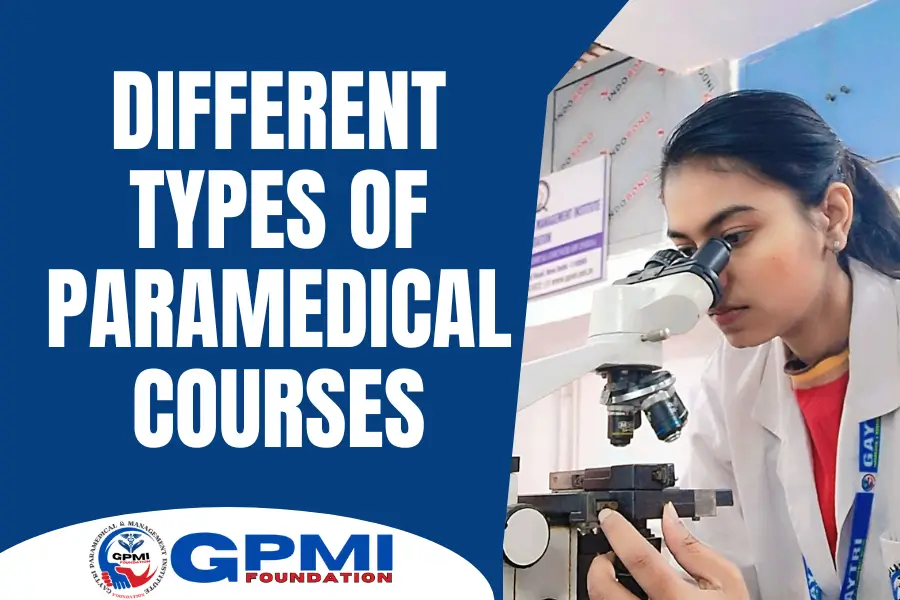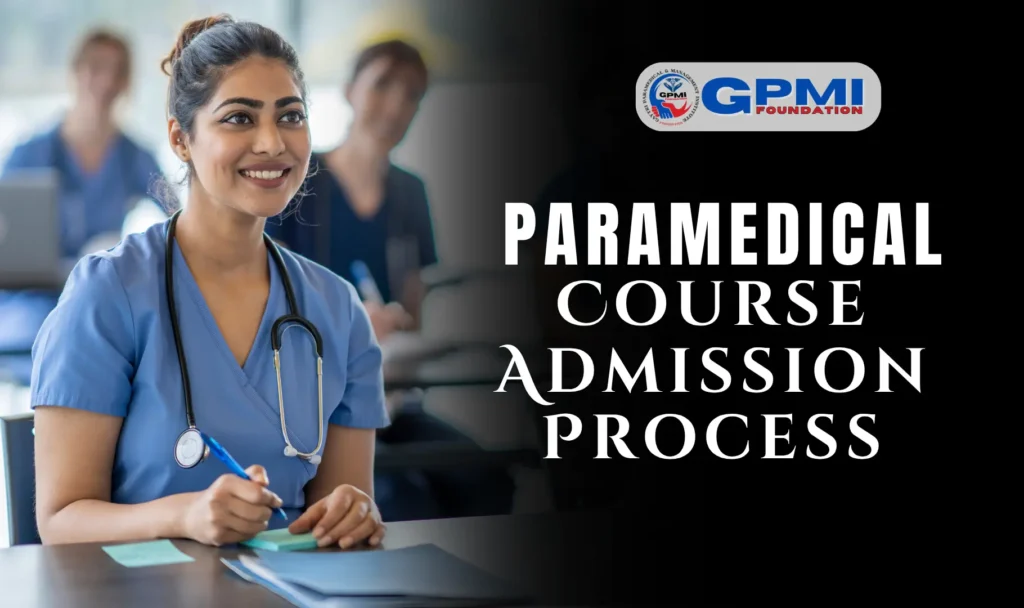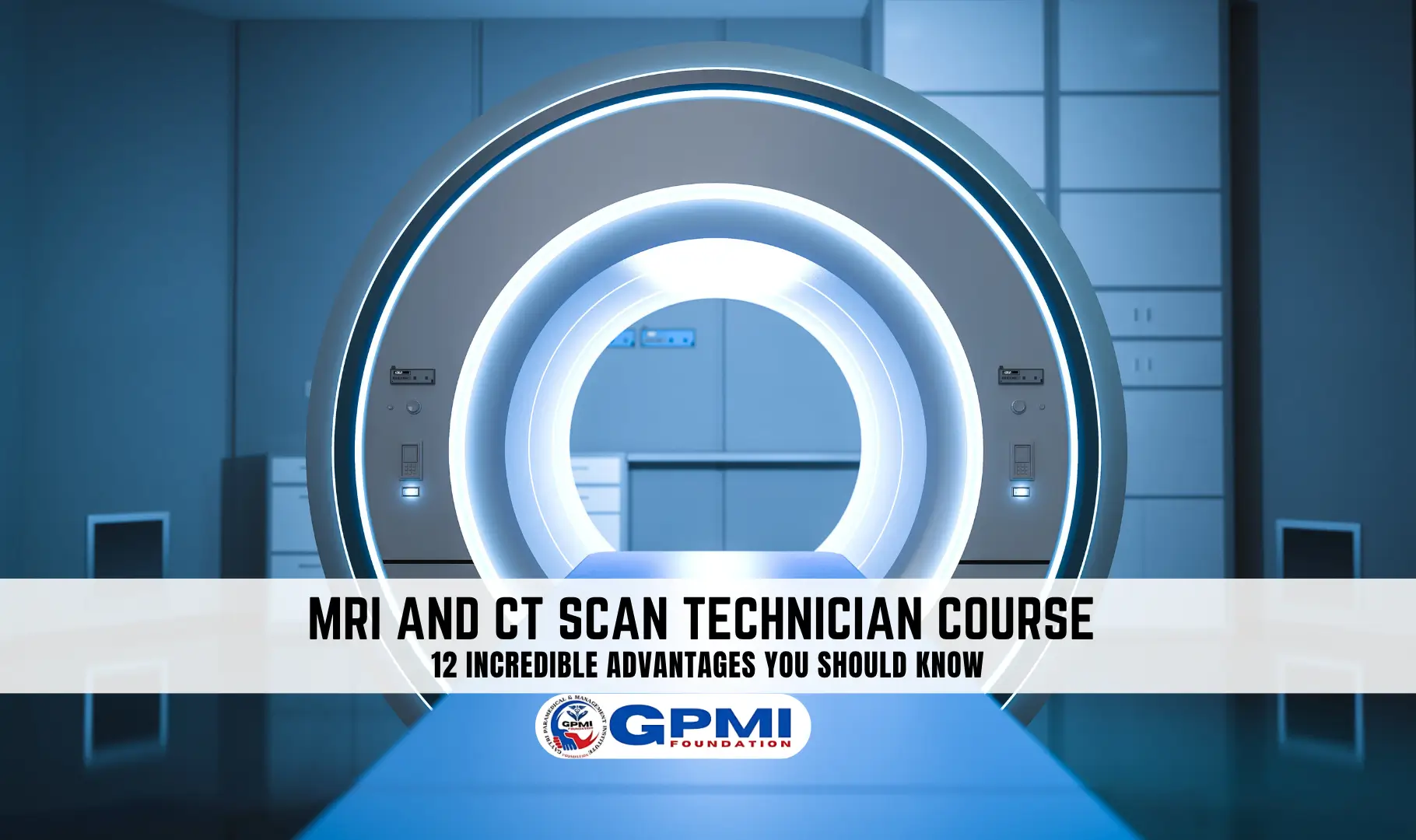Are you interested in a career in healthcare but not sure if becoming a doctor or nurse is the right choice? Have you ever thought about joining the medical field through paramedical courses?
Paramedical courses after 12th open many career opportunities for students who want to work in healthcare. These courses give training in fields like medical lab technology, radiology, nursing, and more. Since the need for healthcare workers is rising, students who choose these courses can build a stable and rewarding career.
One of the best parts about paramedical courses is that they are skill-based and job-focused. Unlike MBBS, which takes many years, paramedical programs are shorter and help students find jobs faster. After completing these courses, many students start working in hospitals, diagnostic labs, or private clinics.
With the growth of healthcare services, paramedical professionals are always in demand. They play an important role in patient care and even in saving lives. If you want to join the medical field but don’t wish to spend long years studying, paramedical courses after 12th can be a perfect choice. They offer respect, good income, and a fulfilling career in healthcare.
Table of Contents
| Particular | Course Details |
| Course Levels | Certificate, Diploma, Bachelor’s Degree, Postgraduate & PG Diploma |
| Paramedical Course Duration | Certificate (6 months – 1 year), Diploma (1 – 2 years), Bachelor’s Degree Courses (3 – 4 years), Postgraduate & PG Diploma Courses (1 – 2 years) |
| Average Fee | Certificate: ₹10,000 – ₹35,000 Diploma: ₹60,000 – ₹1,00,000 Advance Diploma: ₹80,000 – ₹1,50,000 Bachelor’s: ₹1,50,000 – ₹3,00,000 PG Diploma/Master’s: ₹2,00,000 – ₹5,00,000 |
| Average Salary | Certificate: ₹1 – ₹2 LPA, Diploma: ₹1.5 – ₹3.5 LPA Bachelor’s: ₹2.5 – ₹5 LPA, PG Diploma/Master’s: ₹3.5 – ₹7 LPA |
| Top Recruters | Apollo Hospitals, Fortis Healthcare, Max Healthcare, Medanta, Dr. Lal PathLabs, SRL Diagnostics, Thyrocare Technologies, Metropolis Healthcare, etc. |
What is Paramedical Courses?
Paramedical courses are job-oriented training programs that prepare students to work in the healthcare sector as supporting professionals. These courses teach the skills needed to help doctors and nurses in diagnosis, treatment, and patient care.
Paramedical staff are often the backbone of hospitals, clinics, and labs because they perform important tasks like running medical tests, taking X-rays, assisting in operations, and handling medical equipment.
Unlike MBBS or nursing, which take many years of study, paramedical courses are shorter and focus more on practical skills. Students can choose specializations like Medical Lab Technology, Radiology, Operation Theatre Technology, Dialysis Technology, Optometry, and many others.
After completing these courses, students can start working in hospitals, diagnostic labs, blood banks, or private healthcare centers. With the increasing demand for healthcare services, paramedics have a secure career, good income opportunities, and respect in society. In short, paramedical courses open the door to a fulfilling career in healthcare.
Paramedical Courses List
Paramedical courses focus on training students in healthcare support services, equipping them with practical skills to assist doctors, nurses, and medical professionals.
These courses are divided into certificate, diploma, and degree programs, each offering diverse career opportunities in hospitals, diagnostic labs, and research centers. Here are some of the top paramedical courses available:

- Medical Lab Technology (MLT): Courses like B.Voc. in Medical Lab Technology (MLT) and Diploma in Medical Lab Technology (DMLT)is one of the best paramedical diploma courses that train students in conducting lab tests, analyzing blood and urine samples, and diagnosing diseases.
- Radiology and Imaging Technology: Courses such as B.Voc. in Radiology & Imaging Technology focus on using X-ray, MRI, and CT scan machines to detect fractures, tumors, and internal injuries.
- Operation Theatre Technology (OTT): B.Voc. in Operation Theatre Technology trains students to assist surgeons, sterilize instruments, and manage operation theatres.
- Dialysis Technology: B.Voc. in Dialysis Technology focuses on operating dialysis machines for patients with kidney failure.
- Optometry Technology: B.Voc. in Optometry trains students to examine vision, detect eye diseases, and prescribe spectacles and contact lenses.
- Emergency Medical Technician (EMT): Certificate courses in Emergency Medical Technology train students to provide life-saving care during emergencies and transport critically ill patients.
- Nursing Care Assistant (NCA): A Diploma in Nursing Care Assistance trains students in patient care, hygiene management, and basic medical support.
- Physiotherapy Technology: Courses like Diploma in Physiotherapy focus on treating injuries and disabilities using physical therapy techniques.
- Anesthesia Technology: A Diploma or B.Voc. in Anesthesia Technology trains students to assist anesthesiologists in administering anesthesia before surgeries.
- Medical Record Technology: This course focuses on maintaining and managing patient records in hospitals and clinics. Medical record technicians play a key role in ensuring smooth hospital administration and data management.
- Blood Bank Technology: Students in this field learn about blood collection, storage, and transfusion techniques.
- Audiology and Speech Therapy: Courses in audiology and speech therapy focus on diagnosing and treating speech and hearing disorders.
These skill-based programs provide quick employment in hospitals, diagnostic centers, and research labs. With the growing demand for healthcare professionals, paramedical careers are stable, rewarding, and essential to patient care.
READ MORE: 100+ Best Short-Term Paramedical Courses List After 10th & 12th
Paramedical Courses Eligibility…
The eligibility criteria for paramedical courses are straightforward and flexible. Candidates must have completed their 12th grade from any stream, including Science, Commerce, or Arts.
some certificate programs require only a 10th pass for admission, providing opportunities for students who have not completed their 12th.
There is no requirement for entrance exams like NEET or any other specific exams for admission to these courses. Students can directly apply for various certificates, diplomas, and degree programs in paramedicine after passing their 12th exams.
These courses are designed to be accessible to a wide range of students, GPMI offers a great opportunity for those looking to pursue a career in healthcare without the need for extensive entrance testing.
Paramedical Course Admission Process
The admission process for paramedical courses varies depending on the institute and the type of program. Most institutions offer direct admission based on 12th pass-out merit, while some universities conduct entrance exams for specific programs.

Additionally, many institutes provide an online admission process, making it easier for students to apply from anywhere. Below are the different ways students can secure admission into paramedical courses:
1. Admission Based on 12th Pass-Out (Direct Admission)
Many private colleges and universities offer direct admission based on 12th-grade marks (Science, Commerce, or Arts). Some certificate programs even accept students for paramedical courses after 10th.
Steps for Direct Admission:
- Check Eligibility – Ensure you meet the required qualifications (10th pass for some certificate courses, 12th pass for diploma and degree courses).
- Select a Course & Institute – Research paramedical programs and shortlist colleges.
- Fill Out the Application Form – Apply directly through the institute’s website or visit the campus.
- Pay the Application Fee – Some institutes charge a nominal application fee.
- Admission Confirmation & Fee Payment – Once selected, complete the fee payment to confirm your seat.
2. Admission Based on Merit List
Certain universities and government institutions admit students based on a merit list prepared from 12th-grade marks.
Steps for Merit-Based Admission:
- Submit the Application – Apply to colleges following a merit-based process.
- Wait for the Merit List – Institutes release a list of shortlisted candidates based on 12th marks.
- Document Verification – Selected candidates must verify their academic documents.
- Fee Payment & Admission Confirmation – Pay the course fee to secure admission.
3. Admission Based on Entrance Exams
Some reputed universities and government institutes conduct entrance exams for admission into degree-level paramedical courses.
Steps for Entrance Exam-Based Admission:
- Register for the Exam – Apply for entrance tests conducted by institutes offering paramedical programs.
- Appear for the Exam – The test may cover Biology, Chemistry, Physics, and General Knowledge.
- Check Results & Rank List – A merit list is prepared based on performance.
- Counseling & Seat Allocation – Qualified students attend counseling sessions to select their course and college.
- Final Admission & Fee Payment – Complete document verification and pay the required fees to confirm admission.
4. Online Admission Process
Many institutes now offer a fully online admission process, making it convenient for students to apply from anywhere.
Steps for Online Admission:
- Visit the Official Website – Go to the institute’s admission portal.
- Fill Out the Online Application Form – Provide personal, educational, and contact details.
- Upload Documents – Scan and upload necessary documents like 10th/12th mark sheets, ID proof, and passport-size photos.
- Pay the Application Fee – Complete the payment online through debit/credit card, UPI, or net banking.
- Wait for Admission Confirmation – Institutes review applications and confirm admission via email or SMS.
- Pay Course Fees & Start Classes – Once selected, complete the fee payment and start attending classes (online/offline as per course format).
Top Institute for Paramedical Courses in India
Pursuing paramedical courses in India offers diverse career opportunities in the healthcare sector. Here are some of the top institutes renowned for their paramedical programs:
| Top Paramedical College | City |
| All India Institute of Medical Sciences (AIIMS) | New Delhi |
| Christian Medical College (CMC) | Vellore |
| Gaytri Paramedical & Management Institute Foundation | Gaytri Paramedical & Management Institute Foundation |
| University of Delhi | New Delhi |
| National Institute of Mental Health and Neuro Sciences (NIMHANS) | Bangalore |
| Banaras Hindu University (BHU) | Varanasi |
| Manipal University | Manipal, Bangaluru |
| Teerthanker Mahaveer University (TMU) | Moradabad |
| Bangalore Medical College and Research Institute | Bangalore |
| MES Institute of Paramedical Sciences | Kerala |
These institutions are recognized for their comprehensive paramedical education, combining theoretical knowledge with practical training to prepare students for successful careers in healthcare.
Job Opportunities After Paramedical Courses

Paramedical professionals play a crucial role in the healthcare industry by assisting doctors and ensuring smooth medical operations. After completing a paramedical course, students can find jobs in hospitals, diagnostic labs, clinics, research centers, and emergency care services.
The job opportunities depend on the specialization chosen, but the demand for paramedical professionals is consistently high.
1. Medical Laboratory Technician (MLT)
- Job Role: Collecting patient samples (blood, urine, etc.), performing laboratory tests, preparing reports, and supporting doctors in diagnosis.
- Work Places: Hospitals, Diagnostic labs
- Career Growth: Start as a lab technician → grow into senior lab technologist → lab manager → quality control officer → or even open your own diagnostic lab.
- Salary Range:
- Freshers: ₹15,000 – ₹25,000 per month
- With experience: ₹30,000 – ₹40,000+ per month
- Higher salary in private labs, metro cities, and abroad opportunities.
MLT is a respected and stable career choice that offers direct entry into healthcare, fast growth, and long-term security.
2. Radiology and Imaging Technologist
- Job Roles: Operating X-ray, CT scan, MRI, and ultrasound machines; capturing high-quality medical images; assisting doctors in diagnosing and treating patients
- Workplaces: Hospitals, Diagnostic Centers, Research Institutes, Hospitals and super-specialty centers, Emergency care units, Private radiology clinics
- Career Growth: Start as an imaging technologist → move to senior technologist → radiology department supervisor/manager → imaging research assistant → opportunity to specialize in MRI, CT, or ultrasound.
- Salary Range:
- Freshers: ₹18,000 – ₹30,000 per month
- With experience: ₹40,000 – ₹60,000+ per month
- Abroad and private sector jobs offer higher salaries.
Radiology and Imaging Technology is a high-demand field, offering fast career growth, job stability, and a respected role in healthcare.
3. Operation Theatre (OT) Technician
- Job Role: Assisting surgeons and nurses during operations, preparing and sterilizing surgical instruments, maintaining OT hygiene, handling surgical equipment, and ensuring patient safety inside the operation theatre.
- Work Places: Government and private hospitals, Surgical and emergency care centers
- Career Growth: Start as an OT Technician → become senior OT technologist → OT supervisor → operation theatre manager → with experience, move into hospital administration or teaching roles.
- Salary Range:
- Freshers: ₹15,000 – ₹25,000 per month
- With experience: ₹30,000 – ₹40,000+ per month
- Higher packages in super-specialty hospitals and abroad.
OT Technicians are an important part of surgical teams, and this career offers stability, respect, and opportunities for growth in the healthcare field.
- Job Role: Operating dialysis machines, preparing patients for dialysis, monitoring vital signs, managing dialysis fluids, cleaning and maintaining equipment, and supporting doctors during kidney treatments.
- Work Places: Hospitals (nephrology departments), Dialysis centers, Kidney care clinics, Private healthcare facilities, NGOs and community health centers
- Career Growth: Start as a dialysis technician → become senior dialysis technologist → dialysis unit supervisor/manager → with further studies, move into nephrology support roles or teaching.
- Salary Range:
- Freshers: ₹15,000 – ₹25,000 per month
- With experience: ₹30,000 – ₹40,000+ per month
- Private centers and overseas jobs offer higher salaries.
Dialysis Technicians are in high demand due to the rise in kidney-related diseases. This career ensures stable employment, growth opportunities, and a respected role in patient care.
- Job Role: Examining and testing patients’ eyesight, prescribing spectacles or contact lenses, detecting vision problems, assisting in eye surgeries, and providing pre- and post-operative eye care.
- Work Places: Eye hospitals and clinics, Optical retail chains, Vision care centers, Contact lens and optical companies, Research institutes and eye-care NGOs
- Career Growth: Start as an optometrist/vision care technician → become senior optometrist → eye clinic manager → specialist in pediatric or geriatric optometry → opportunities for research or teaching in optometry institutes.
- Salary Range:
- Freshers: ₹18,000 – ₹30,000 per month
- With experience: ₹35,000 – ₹50,000+ per month
- Higher earnings possible in private clinics, multinational optical brands, or abroad.
Optometry Technology is a fast-growing career option that combines medical skills with patient care. It offers excellent job stability, good income, and respect in the healthcare field.
6. Emergency Medical Technician (EMT)
- Job Role: Providing first aid and emergency medical care to patients, stabilizing them during accidents or critical conditions, using ambulance equipment, and safely transporting patients to hospitals.
- Work Places: Government and private hospitals, Ambulance services, Emergency and trauma care centers, Disaster response teams, NGOs and rescue organizations
- Career Growth: Start as an EMT → move up to senior EMT → emergency care supervisor → ambulance services manager → with higher training, become a paramedic or instructor in EMT training programs.
- Salary Range:
- Freshers: ₹12,000 – ₹20,000 per month
- With experience: ₹25,000 – ₹35,000+ per month
- Higher salaries available in private hospitals, international ambulance services, and Gulf countries.
EMTs are the first line of response in medical emergencies, making this career highly respected, challenging, and full of growth opportunities.
7. Nursing Care Assistant (NCA)
- Job Role: Assisting nurses and doctors in patient care, checking vital signs, helping patients with daily activities, maintaining hygiene, giving medicines on time, and supporting recovery.
- Work Places: Government and private hospitals, Nursing homes, Rehabilitation centers, Community health centers, Home healthcare services
- Career Growth: Start as a Nursing Care Assistant → grow into senior care assistant → head nurse aide → with further studies, move into staff nurse or supervisory roles.
- Salary Range:
- Freshers: ₹10,000 – ₹15,000 per month
- With experience: ₹18,000 – ₹25,000+ per month
- Higher earnings possible in private hospitals, home care services, and abroad.
Nursing Care Assistants are in steady demand because of the rising need for patient care services. This career offers respect, job security, and a chance to serve people with compassion in the healthcare field.
Top Recruiter of Paramedical Courses
Paramedical professionals are in high demand across various healthcare sectors, including hospitals, diagnostic centers, research labs, and emergency medical services. Below are some of the top recruiters offering excellent career opportunities for paramedical graduates:
- Government & Private Hospitals: AIIMS (All India Institute of Medical Sciences), Apollo Hospitals, Fortis Healthcare, Max Healthcare, Medanta – The Medicity, Manipal Hospitals, Tata Memorial Hospital, Christian Medical College (CMC), Vellore, etc.
- Diagnostic & Pathology Labs: Dr. Lal PathLabs, SRL Diagnostics, Thyrocare Technologies, Metropolis Healthcare, etc.
- Pharmaceutical & Research Companies: Sun Pharma, Cipla, Biocon, Dr. Reddy’s Laboratories, Serum Institute of India, etc.
- Blood Banks & Organ Transplant Centers: Indian Red Cross Society, Rotary Blood Bank, Jeevan Blood Bank & Research Center, etc.
- Emergency Medical Services & NGOs: GVK EMRI (108 Ambulance Services), Ziqitza Healthcare Ltd., WHO (World Health Organization), UNICEF, etc.
- Eye Hospitals & Optical Chains: Lenskart, Titan Eye+, Dr. Agarwal’s Eye Hospital, Vasan Eye Care, etc.
- Nursing Homes & Rehabilitation Centers: Columbia Asia Hospitals, Care Hospitals, Narayana Health, etc.
These recruiters provide stable job opportunities, career growth, and good salary packages for paramedical professionals. With the rising demand for healthcare services, paramedics can secure rewarding careers in both public and private sectors.
Is Paramedical Courses Worth It?
Yes, paramedical courses are worth it, especially for students who want a stable and rewarding career in healthcare without spending years in medical school. These courses are skill-based, and job-oriented, and offer quick employment opportunities in hospitals, diagnostic labs, and research centers.
With the increasing demand for healthcare professionals, paramedical graduates find jobs easily in public and private hospitals, pathology labs, and emergency care services. The courses are also affordable and have a shorter duration, making them a practical choice.
Moreover, paramedics play a crucial role in patient care, assisting doctors in diagnosis, treatment, and surgery. Salaries range from ₹2.5 – ₹8 LPA, with good career growth options. Specializations like Medical Lab Technology, Radiology, and Dialysis Technology offer excellent job prospects.
If you want a respected, high-demand, and financially stable career in healthcare, paramedical courses are a smart choice after the 12th.
Conclusion
Paramedical courses are designed to train students in important medical support services that help doctors and nurses in their work. These courses prepare skilled professionals such as medical lab technicians, radiographers, optometrists, and operation theatre technicians. Unlike MBBS, which takes many years of study, paramedical programs are more practical, skill-based, and allow students to start their careers much faster.
For students who have passed 12th grade, paramedical courses can be a smart choice. They provide direct job opportunities in hospitals, clinics, diagnostic labs, and even private healthcare centers. Students gain hands-on training that makes them job-ready soon after completing their course.
With the rising demand for healthcare services, paramedics are becoming an essential part of the medical system. They play a key role in patient care, medical testing, and life-saving support.
If you want a respected, stable, and rewarding career in healthcare without spending many years in study, paramedical courses are an excellent option.








One response to “Is Pursuing Paramedical Courses After 12th a Smart Choice?”